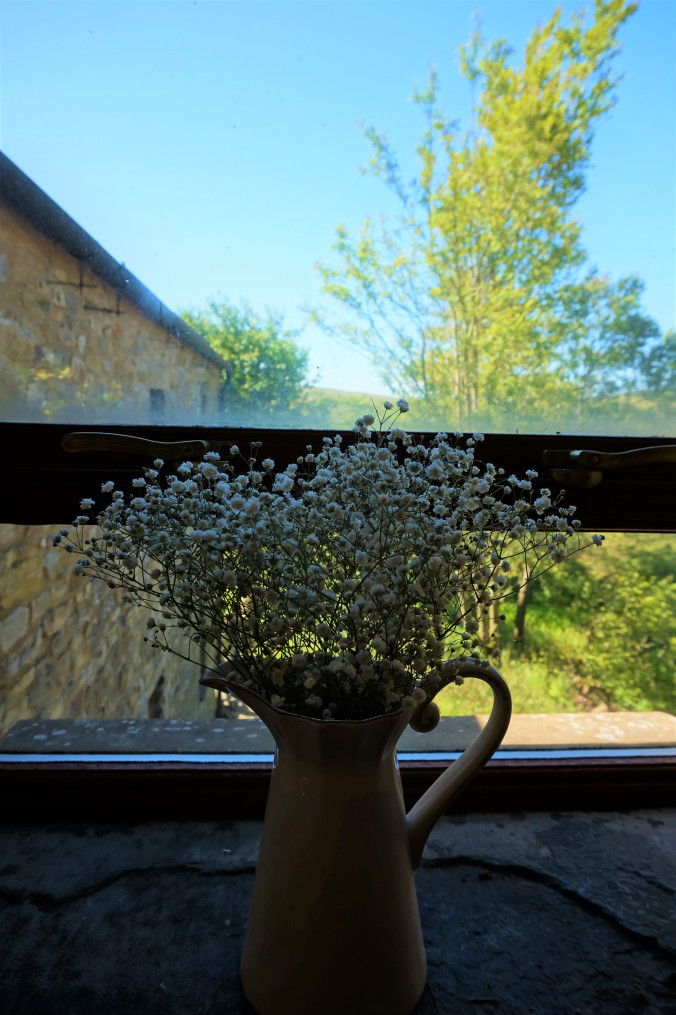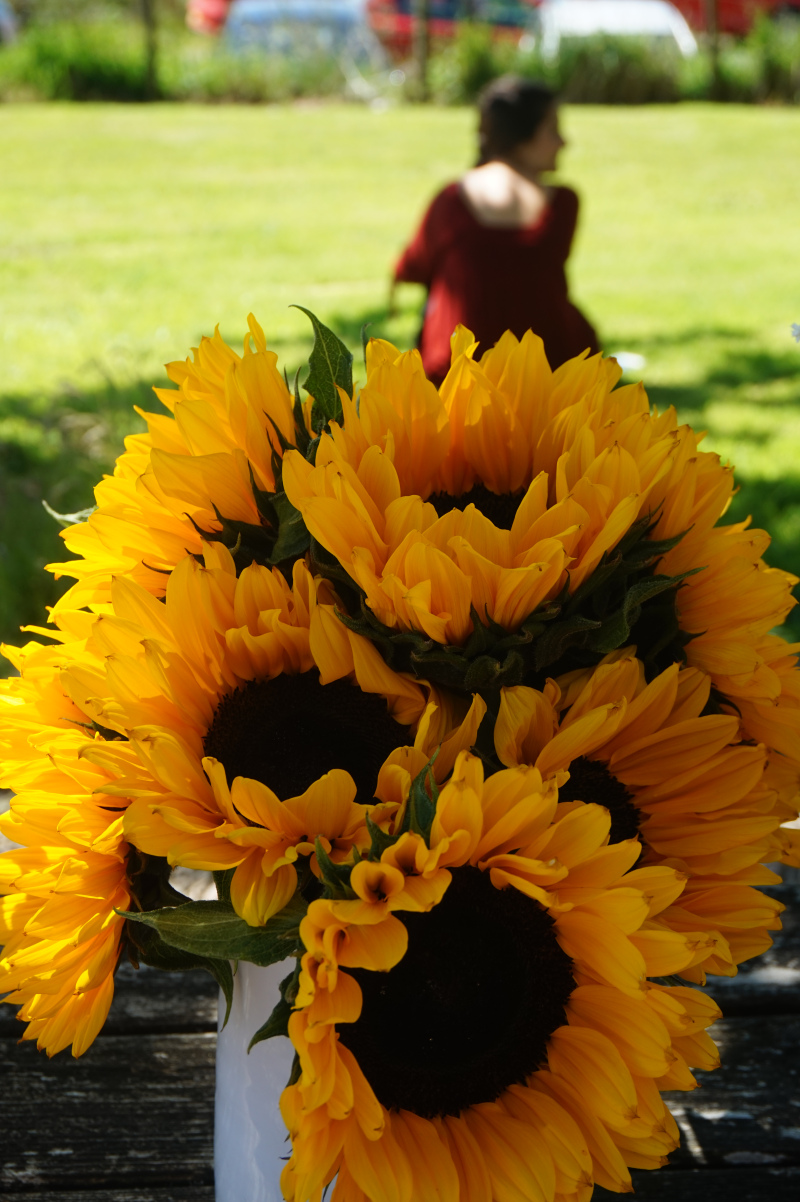First of all, I want to tell you that I am writing this after finishing a work session at 4AM. Oh, the joys of the rural internet. I want you to know this because people often think that slowing down and living life a little simpler, means being rich or retired and actually, it’s not.
For me and many others, slowing down and simplifying life is about taking nuggets of unnecessary, out of our day-to-day lives.
I wanted to show you how I apply it to my lifestyle and hopefully, it’ll give you some simple ideas of your own.
1. Desiring less
Also known as minimalism but yet it conjures up images of getting rid of everything and living with the utter basics. That’s great for some people but it doesn’t work for everyone and I find it puts people off altogether- little changes make big impacts.
Minimalism is an ironic concept for someone who works in marketing right?!
Here are some real-life examples. For things I am going to use most days – I find myself seeking out stuff which cost me a bit more but lasts longer and because of that, I’m collecting less and less. I tend to shop with smaller businesses too because the quality overall is better.
Other things that are helping me to have less:
- I have said no to personal loans and credit cards
- I only have a £50 overdraft
- If I want to buy something, I’ll wait 30 days and ask myself if I still want it (this is a new exercise I’ve been trying out)
- Gifting clothes etc to charities
- Focusing on quality rather than quantity
Although it’s not all perfect especially living with someone who can’t help but acquire things we don’t need (sorry Rik). The biggest challenge for us both will be moving into our ‘Tiny Home’ next year which will force us to get far more realistic about the desire for less.
Room for improvement: I would like to find out more about capsule wardrobes.
2. Refusing to be Superwoman
Modern culture promotes girl tribes, women bosses, miss independent and it’s been a long time coming and much needed. However, I also think it forgot to tell us that it’s OK that we can’t and don’t want to do everything ourselves.
I believe a good life is about asking for help and delegating.
It’s a work in progress for me. For example, I totally have control issues about cooking food for everyone. I’m offered help but I’ll refuse it even though I need it because I’m concerned it won’t turn out how I want it to be.
Or a client will ask me to do something at ridiculous o’clock and I’ll do it because I’m afraid they’ll go elsewhere. That one, I have nipped in the bud and have been pleasantly surprised by setting boundaries.
Other things that have helped me to say no to superwoman syndrome:
- Choosing to not have children – a personal decision one that causes so much controversy! I feel like I’m doing my bit for the planet by not adding to the overcrowded population. And I can donate as much babysitting as my friends need. 😉
- I don’t want a high flying career – I’m done with climbing the career ladder and try to do only things that brings me honest enjoyment.
- Focusing on what I can give others – in terms of listening, a hug, advice or taking someone on an adventure instead of worrying how much I am being paid and what big and better gifts I can buy others.

3. Mainly Mindful
Mindfulness is another confusing term like slow living that’s been tossed around all over the internet. For me, it’s one of the underlying principles which aids slower and simpler living.
It’s the act of being in the present, being kind to yourself, nonjudgemental and engaging all of your senses in everyday life experiences.
Being mindful of thoughts, feelings and senses can help me to turn a crappy day into a better day.
One of the biggest ways I get to practice this is by going walking:
- Starting with a body scan (and I usually do this throughout the walk too): are boots tight enough? Am I at the right temperature? Do I need to go to the toilet? Am I hydrated enough? Are there any parts of my body I need to be gentle with? How am I feeling at the beginning, during and end?
- Feeling the ground on my feet: taking full advantage of the earth’s natural free- electrons and allowing my body to absorb them. I love walking barefoot on wet grass especially. People who walk barefoot have been found to be healthier, happier and more content with what they have.
- Engaging my senses: listening past what I can hear in front of me, concentrating on a particular scene and picking out the finer details, foraging objects I feel drawn too, smelling the air and listening out for wind changes etc.
Another way I’ve learned how to channel mindfulness is through the seasons and learning about them. Little things like what vegetables and fruits are in seasons and what constellation and moon phases to look out for – I’ve had wonderful Mars gazing session this month since it’s been sitting low and red in the black sky)! Feeling in tune with the ebb and flow of the seasons helps to put it all into perspective for me.
Room for improvement: I would like to engage in mindful eating more often.
4. Contribution and Community
I am reprogramming how I feel and think about achieving things. It’s not uncommon to hear people say ‘ I want X because it will make me feel Y and have Z’ and most of the time, it’ll only bring ‘happiness’ for a small amount of time before we’re aiming for something bigger and better.
My contribution is where I am at currently. I am asking myself how X will impact upon Y and Z for the better.
Instead of short-term fixes, I am focusing on altruistic processes that will also contribute to future generations.
Simple things such as:
- Buying a vegetable box from my local organic garden
- Using less single-use plastics
- Picking up rubbish on waterways and hiking trails
- Education on better ways to do things
Room for improvement: I would like to start using shampoo bars.
Since moving to the rural land, I have seen just how strong-willed these local communities are. Despite what’s going on upstairs, the people around me are determined to make a better life for everyone and in doing so are inspiring others.
I truly believe that the community is and will be responsible for the big changes. I feel an engaged and happy community creates a more peaceful society and encourage members to demand and be better. I have been reading the Little Book of Lykke which is heavily based on this idea and has some insightful studies.
It’s so easy to place blame on the outside world when a lot of good can come from our own doing.
****
My only advice for people looking to slow down is to pick at one nugget of unnecessary, at a time. Implement a slowed down version ‘slowly’ so you don’t feel overwhelmed or start to worry that you’re not doing enough of it.
I’d love to hear some of your simple and slow living tips so please feel free to comment below.

